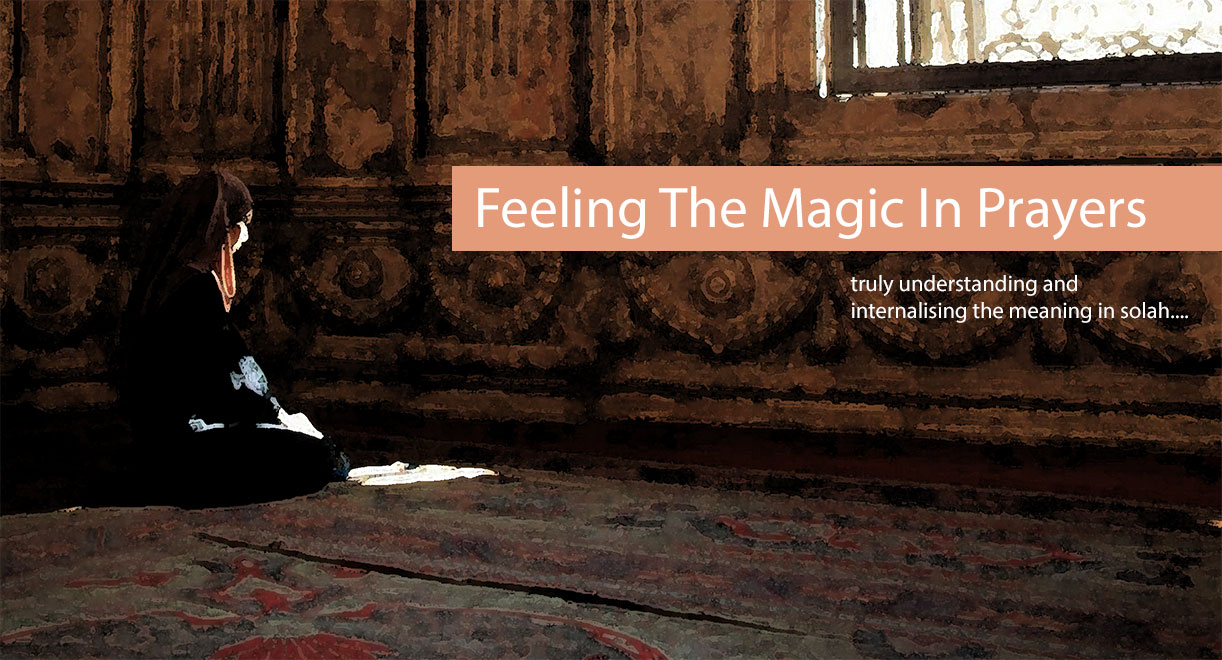The Malay-Muslim community in Singapore has made significant progress in the field of academia. Attesting to this, it’s no longer a rare sight to see hijab-wearing women on polytechnic and university campuses throughout our little island. It is also no longer shocking when Muslims come out tops in national exams, as one girl did for the PSLEs a couple of years ago.
However, this recent upward trend, though promising, is by no means a cause for celebration or the proverbial pat on the back. Statistically, Malays are still behind their Indian and Chinese peers in terms of passing rates at all levels. They still lead the pack in terms of percentage of school dropouts.
Many reasons have been put forth as to why this disparaging disparity exists. Some blame genetics, others claim that the typical Malay family is generally more easy-going and laidback in pursuing the child’s academic excellence, preferring instead to focus on other aspects of their development. Some have even suggested that being smart is difficult, if not impossible, given the financial plight of many Malays.
Personally, I’m tempted to think that the problem stems from the common practice of that old saying, Rumahku Syurgaku, which roughly translates to mean “My home, my heaven.” It’s not that I find the phrase to be fundamentally wrong; it’s just that people have been known to interpret its meaning to suit their lifestyle. Allow me to explain.
The archetypal Malay home is an oasis of comfort. The living room is usually decked with sofas, curtains, cushions and carpets. There’s always a pleasant lemony scent hanging in the air as if emanating from the fake flowers which adorn every corner of the home, from living room to bedroom to bathroom. The design and upkeep of this archetypal Malay home is very much the domain of women, with one glaring exception: the choice of home entertainment.
I am always amazed by the one constant in ninety-nine percent of all Malay-Muslim homes I visit; the presence of a huge television, often of the flat-screened plasma variety. No matter what the economic background of the family, it seems only normal for Dad to spend thousands on a top-of-the-line television set, complete with a DVD player and surround-sound speakers.
This exorbitant behaviour when spending for the home, all sheepishly defended in the name of Rumahku Syurgaku, has resulted in several inconvenient truths. Many children find it difficult to study at home. Ayah, stressed from work, chooses to drown his sorrows in another round of home karaoke. Ibu decides to turn up the television’s volume to the maximum, eager to hear every syllable of dialog of her favourite Indonesian drama.
At times, this problem produces another headache. Parents, eager not to allow the television to affect the studies of their children (and equally eager to continue keeping the television on for karaoke), may instruct their younglings to study in their respective bedrooms, behind closed doors. They give their kids personal computers, plugged into bedroom sockets and wired to the internet, and provide study tables next to their beds, all in hopes that their children will diligently revise schoolwork and use the power of Google for research and study purposes. Forgive me for being blunt, but if ever there was an idea more stupid than giving guns to monkeys, this must be it.
What then is the solution to bridge the ‘grade-point’ gap, mentioned earlier in this article? What can Malay-Muslim families do to help their kids excel at all levels in school? For starters, the home, preferably the living room, needs to be morphed from a comfortable zone for rest and relaxation to an environment suited for reading and study. This shift may involve several expensive processes, namely;
-
Throwing out the television (or breaking it apart to see how it works).
-
Providing ample space for a home office, including ergonomic chairs, good lighting and computer equipment. This investment will go a long way in helping kids with school projects, assuming the home office is placed within the family living room thereby allowing Ayah and Ibu to spy check on what Junior’s been surfing.
-
Assembling shelves which run from floor to ceiling and from wall to wall. Fill shelves with books on a diverse range of topics ranging from languages, logic and philosophy, history, astronomy, physical sciences, biology and geography. When the members of the family no longer have the television to fill up their time, they’ll turn to books.
-
Storing educational magazines in lid boxes for easy access.
-
Doing away with surroundings deemed “too comfortable.” Studies have shown that the human brain begins to lose focus once the body feels relaxed. This probably explains why one feels tired and sleepy whenever studying on a couch or bed.
Of course, all these home improvement measures mean nothing if the children of the family are simply not motivated to study. Parents too, have a big part in influencing this. Imagine if the family set aside a time each day to read or study together. Surely, such steps would be beneficial to son or daughter, even if parents are completely clueless as to how to tutor them.
On another note altogether, the first line of the Quran revealed to our beloved Prophet Muhammad (peace and blessings be upon him) was to read, in the name of the Lord Who created – Created man from a clot. If we think that as parents our duty is to feed and clothe our children and to keep them safe from harm, then surely, we must also provide them with the means to read.
As IKEA puts it, “you don’t have to be rich to be clever.”
Written by:
Shahnawaz Abdul Hamid
[email protected]
The writer is currently “studying” mechanical engineering at a university, and hopes to one day hang his degree from the wall of his very own sarabat stall. He often is accused of being unambitious, especially when asked on what his dream job is, which he sincerely answers as any job which is a 20-minute bicycle ride from his home in Sengkang. He sometimes cracks his recently-shaved bald head wondering why getting married in Singapore has to be such a costly affair, why doing a hundred – albeit meaningless – things a day is now a national pastime, why sleeping before 10 is considered early. He is a big fan of Magiclean wipers, cheese prata and sunsets.
If you would like to join us as a writer or have enquiries on Thalatha Scoop, send your questions or articles to [email protected].









Salam Nawaz,
Interesting take but respectfully, I have to disagree. I have many chinese frens who grew up with the finest things in life, live in condos, landed, laptops, cable, go for cruises with family, etc. They still become scholars, valedictorian, etc. Comfort and resources are not impediment to academic success, they help towards better academic success.
Throw away the TV ? Eh Jangan lah ! If books are called ‘windows to the world’, what adjective would you use for TV ? Think National Geographic, Discover Channel, Science Channel, CNN, BBC, Al Jazeera and many more…
Would you rather our kids sit in a room with 4 walls, one desk, a chair and read pages after pages of, say, about animals, in a static manner OR watch the entire ecosystem occuring naturally in the amazon on Discovery Channel ? Instead about reading that giant ants exist on the Amazon, our kids can actually see the giant ants, how they live, how the eat, how the fight, etc.
Instead of reading that man has landed on the moon, he can actually see the visuals, how Apollo 11 landed on the moon, he can see how Armstrong came down the steps and landed on the moon. Somehow, you are more inspired seeing the visuals and the hearing the sounds than reading words.
With television, you can actually see the surface of Mars thru Opportunity and Spirit – 2 robots send by NASA. You can see the mountains, volcanoes, the seas, terrain, etc.
Don’t we want our kids to see that we now live in a world where we can send robots to another planet ? And how these planets look like ? So that they can dream and aspire ?
Do you want our kids to just read about climate problems ? Or is it better to show them via TV that ice at the poles are melting, it’s effect on Katirna, etc ? Is it better to read about the great pyramid or have it in sound and visuals at the comfort of your own home while learning about history ? Should they just read and see pictures in the science book about sharks, stingrays and the undersea ecosystem OR watch National Geographic which takes you deep into the ocean world and see things you never ever learn in books ?
Recently, my son watched a documentaty about crocodile on TV,in bed with me and my wife. We watched how the crocodile preyed on the deer drinking by the river from the crocodiles angle – the camera was from the water up. We watched how the crocodile lunged and dragged the deer into the water, how it drowned the deer and eventually ate it. All these from angle of INSIDE the river. Amidst the ohh….ahh….suruh the deer lari lari….My wife and son had to cover one eye while the other eye never missed a scene….it was that graphical !
You will never get these much learning and information from a book as compared to documentaries..I believe my son learnt alot about crocodiles thru that program than he can ever learn from reading his science book…
Throw away TV ? Do we want to deprive our kids with all these knowledge and learning readily out there via TV ?
Improve academic performance problem within our community. If you ask me, my short answer to the problem is discipline.
If you ask me about the ‘Rumahku Syurgaku’ mindset, I would see the problem (with that mindset) more relating to people sanggup berhutang at COURTS, pay exhorbitant interest just to have that material lifestyle at home – problem is more that these people sanggup berhutang rather than problem with affecting studies of the kids.
My take anyway. You always have interesting writings altho I may differ in the views. Keep it up ! I pray you’ll be great and successful. Insya Allah !
Wan
Assalamualaikum!
I do agree about the TV not being in the living room but to throw it away is such a waste. Why not sell it or hook up a computer to it so that it becomes a huge pc monitor. {laughter!}
Yes, I agree with Wan that the TV capture the images better than the books or magazines but sometimes when you look at the pros and cons of a television, I feel that it is such an unnecessary thing to have.
I feel that TV is such a passive way to be entertained whereas a TV hooked up to a computer system would be better as it makes it an active system as opposed to a passive one.
I remembered when I went to a Chinese friend’s 3 storeys bungalow house, her father had made the living room of the house as a place to meet and chat and converse and share ideas. Whereas the TV was in a TV room.
It struck me as “What a great idea!” that I shared this concept with most of my friends and that some of them actually converted a special space for their Home Entertainment System with sound proof walls and surround sound system with x-box games system etc etc.
Looking back at what most Malays have to live in Singapore, a TV room maybe out of the question BUT wouldn’t it be great that the TV is not there in the living room when guests arrive and that people come to talk and share and converse and share ideas? Rather than being “pookaw-ed” by the TV, why not change the ‘sikap’ of our culture and talk or participate in an active manner?
I know that when I got my own house, I discussed this with my wife that the TV goes into the TV place and the living room is a place to sit and have a conversation.
Yes, the mindset of some Malay head of the family has not changed with the times. I believe that the term Rumahku, Syurgaku should be abolished. It should be replaced with Rumahku, Masjidku or more correctly, Masjidku, Rumahku.
Isn’t this what our Beloved Rasul(saw) taught us?
The problem with the Singapore Malay education status in Singapore can be solved if only they know about the concept of having the right ‘akidah’.
I still see a lot of us studying because of exams or that we want to score such and such grades so that we can have a great looking certificate so that we can have a great job and so that is why we study hard.
Wrong!
We should study because it is a right of us Muslims to know the truth about God and His creations.
If we take a look at a particular Muslimah from Kelantan, Malaysia who scored 19A1 and 1A2, we imagined someone who has a life of luxury and wealth and a home environment that is so conducive for study that we can only hope to attain.
Nik Nur Madihah Bt. Nik Mohd. Kamal lives a life of poverty where the sole breadwinner is the fisherman father and a mother who is a homemaker.
No TV in the living room? Not true, there is a TV in the living room.
So what is the difference?
Many and one of them is respect and support from both parents to their children.
Yes, I agree with Shahnawaz that parents is the pillar of support for the children who wants to excel and that parents should play an important role in the success of their children.
When there is no great parenting in the equation, there can be no great children.
I believe that it is the lack of ‘amalan’ in the parents or guardians that causes the child to be “rosak”!
Na’uzubillah!
Great article, Shahnawaz. Keep it up!